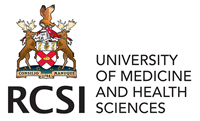About the Project
Genome and exome sequencing studies have confirmed vast heterogeneity in mutational rates and signatures in cancer genomes. For example, colorectal cancer genomes with mutations in mismatch repair genes show high mutational burdens.Tumours exposed to mutagenic environmental factors such as ultraviolet light in melanomas and tobacco smoke in lung cancers also have elevated mutation rates.
This PhD project will investigate mutational rates and signatures in cancer genomes to identify novel cancer genes and mechanisms of tumour development and evolution.
The student will probe thousands of publically available cancer genome sequences using existing and novel bioinformatics approaches. The project builds on the Principal Investigator’s expertise in Bioinformatics, Cancer gene prioritization and Next Generation Sequencing Data analysis [1-7] and will be based in the Cancer Genomics & Bioinformatics Research Group under the supervision of Dr Simon Furney.
PLEASE NOTE the following important points:
Salary: €18,000/year (plus fees) for four years
Fees are funded for EU applicants ONLY. Non-EU applicants are liable for the balance of fees at the Non-EU rate.
NB: APPLICATION PROCESS PLEASE SEE: http://www.rcsi.ie/cat_course_detail.jsp?n=2214&p=2122&itemID=456
Informal enquiries can be directed to [Email Address Removed].
Application Deadline: Monday 1st May 2017 at 11.30 p.m.
Interview date: early May 2017
References
1. Furney SJ, Calvo B, Larranaga P, Lozano JA, Lopez-Bigas N: Prioritization of candidate cancer genes--an aid to oncogenomic studies. Nucleic Acids Res 2008, 36(18):e115.
2. Gundem G, Perez-Llamas C, Jene-Sanz A, Kedzierska A, Islam A, Deu-Pons J, Furney SJ, Lopez-Bigas N: IntOGen: integration and data mining of multidimensional oncogenomic data. Nat Methods 2010, 7(2):92-93.
3. Turajlic S, Furney SJ, Lambros MB, Mitsopoulos C, Kozarewa I, Geyer FC, Mackay A, Hakas J, Zvelebil M, Lord CJ et al: Whole genome sequencing of matched primary and metastatic acral melanomas. Genome Res 2012, 22(2):196-207.
4. Furney SJ, Pedersen M, Gentien D, Dumont AG, Rapinat A, Desjardins L, Turajlic S, Piperno-Neumann S, de la Grange P, Roman-Roman S et al: SF3B1 mutations are associated with alternative splicing in uveal melanoma. Cancer Discov 2013, 3(10):1122-1129.
5. Turajlic S, Furney SJ, Stamp G, Rana S, Ricken G, Oduko Y, Saturno G, Springer C, Hayes A, Gore M et al: Whole-genome sequencing reveals complex mechanisms of intrinsic resistance to BRAF inhibition. Ann Oncol 2014, 25(5):959-967.
6. Viros A, Sanchez-Laorden B, Pedersen M, Furney SJ, Rae J, Hogan K, Ejiama S, Girotti MR, Cook M, Dhomen N et al: Ultraviolet radiation accelerates BRAF-driven melanomagenesis by targeting TP53. Nature 2014, 511(7510):478-482.
7. Piraino SW and Furney SJ. Identification of coding and non-coding mutational hotspots in cancer genomes. BMC Genomics, 2017, 5;18(1):17.

 Continue with Facebook
Continue with Facebook

